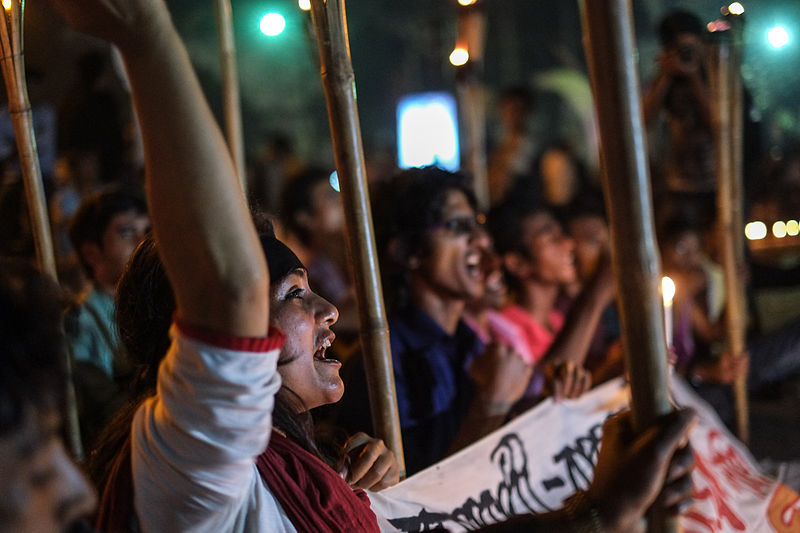
Since February 5, there have been a series of large protests across Bangladesh coupled with violent counter-demonstrations. The protests were in response to the sentences given to Abdul Quader Mollah, a leader of the Jamaat-e-Islami party. He received life in prison for his role in “beheading a poet, raping an 11-year old girl and shooting 344 people” during the 1971 Liberation War. The protesters are demanding that Mollah be executed for his role in the 1971 massacres. We are calling for the government to resist such pressure. Meanwhile the Jamaat-e-Islami has been implicated in acts of violence against minority religious shrines in the southern part of the country.
In 1971, Bangladeshis rose up to overthrow the Pakistani military rulers after one of the most brutal crackdowns since World War II. Upwards of 3 million people died in an orgy of violence and ethnic cleansing between March and December 1971. Eight million people fled to squalid refugee camps in India. The killings ended after India quickly invaded and defeated the Pakistani Army. In the chaos that followed Bangladesh’s independence, little was done to ensure that those who were culpable in the massacres were brought to justice. Survivors of the 1971 horrors have seethed ever since, arguing that until those convicted of war crimes are prosecuted, there can never be justice.
It was only in the past few years that Bangladesh created the International Crimes Tribunal which sought to try those accused of war crimes who were still alive. Unfortunately, this court was riddled with problems and it’s clear that those convicted have a credible claim that they did not receive a fair trial. The guilty verdicts against Abu Kalam Azad, Mollah, and Delwar Hossain Sayedi however does provide a modicum of closure to some who view these trials as better than nothing.
But many, especially those in Shahbag feel that these trials are not enough. That’s why these protests are of a very different character than the ones we have seen during the Arab Spring and it would be a mistake to compare the two. In Cairo’s Tahrir Square, protesters demanded an end to the authoritarianism of former President Hosni Mubarak. However, in Bangladesh, the protesters are arguing that the Bangladeshi government (democratically elected) is being too soft on the “war criminals.” Furthermore the protesters in Shahbag are overwhelmingly students, poets, actors and members of civil society.
In a way it puts human rights organizations in a quandary. We cannot accept their calls for the death penalty for convicted war criminals. Nor can we say that the trials live up to international standards for fair trials. However, human rights organizations share the broader goals of justice for the victims of the 1971 massacres. The pent-up frustration over the impunity with which crimes were committed in 1971 is part of the larger frustration about impunity in South Asia writ large.
